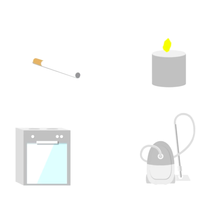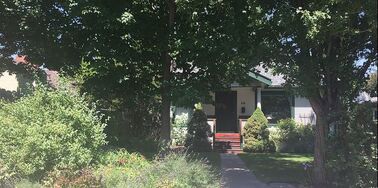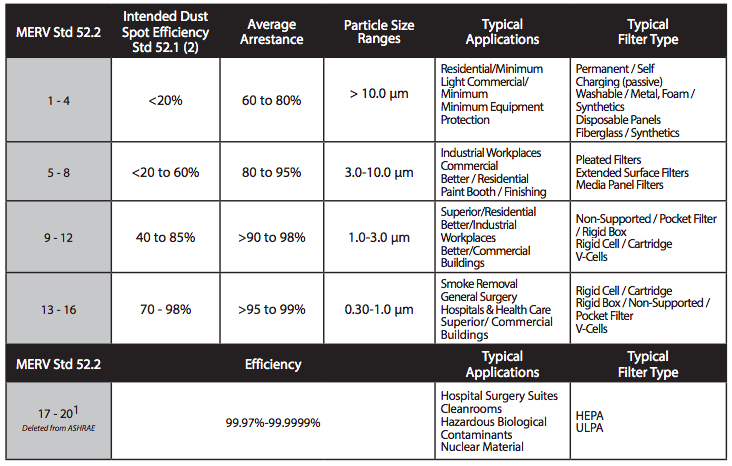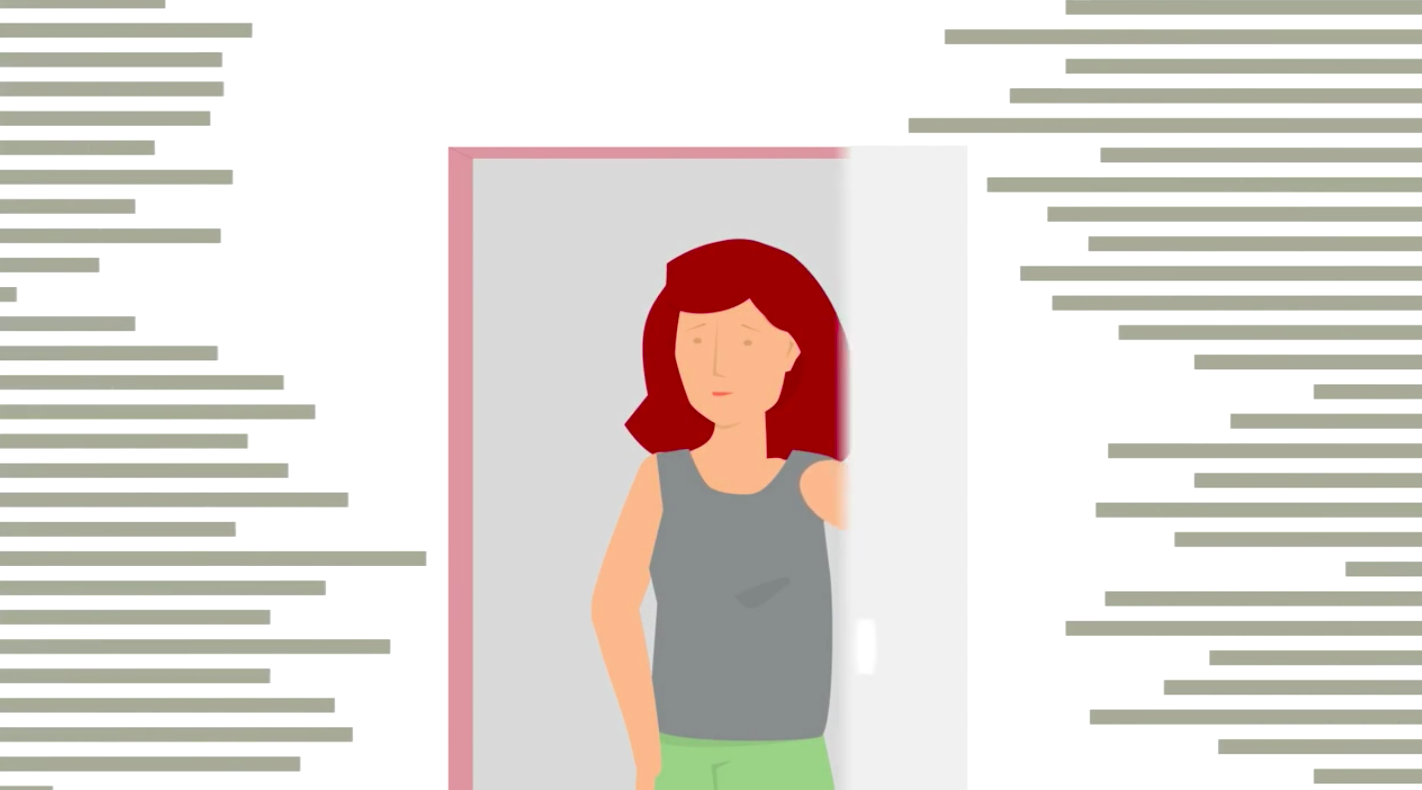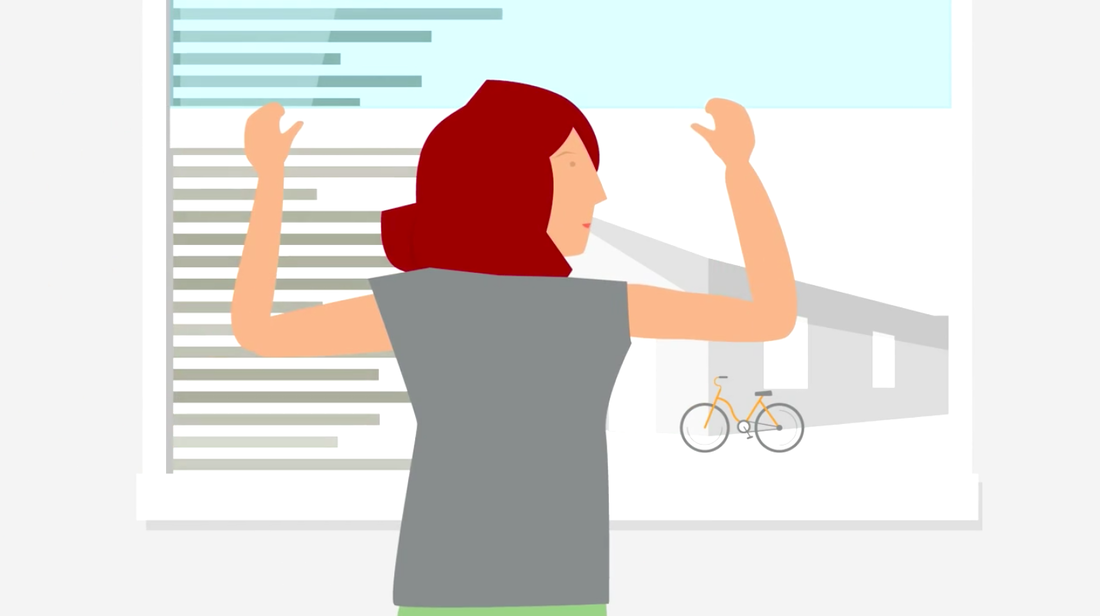|
Minimize potential health impacts of smoke by reducing other pollutants in your home, changing the settings on your central cooling systems, and more.
|
Easy Tips for Improving Air Quality - Heating and Cooling Systems
All centralized heating and cooling systems have a filter component. The filter can often be found where the main system is located, where outdoor air is being pulled inside. For example, in a typical home furnace system, the filter is often placed before the blower motor, in a space between an air duct and the heating aspect of the furnace. Filters are designed to reduce pollution of our indoor air, and are rated on an effectiveness scale by ASHRAE, the American Society of Heating, Refrigerating, and Air-Conditioning Engineers. These MERV (minimum efficiency reporting value) ratings vary from 1 to 20 depending on how well they filter different sizes of pollutants. Below is a chart that displays the effectiveness of different MERV rated filters.
For wildfire smoke, filters rated at least 13 are effective in reducing harmful particles in the air. Filters rated below 13 cannot effectively trap the harmful particulates in wildfire smoke. However, these higher rated filters can strain old heating and/or cooling systems, so consider asking an HVAC technician to check your system before upgrading your filter. Also, using a finer filter will cause your system to use more energy to push air through, so think about putting a lower rated filter back in after the smoke clears away.
Most heating and cooling systems are able to shut off the inflow of outdoor air and simply recirculate indoor air. This is helpful during wildfire smoke because it allows your indoor air to be filtered multiple times, and prevents smoke from coming inside. Find out if your system can be switched to recirculate indoor air. Remember to re-adjust your settings when the smoke clears so that your home or office can have fresh air.
Smoke Leakage
Smoke particles are tiny, and can seep through small cracks in your building. In order to let your filters do their job, make sure to keep doors and windows closed as much as possible and block off any other routes for outdoor air to get inside.
Most heating and cooling systems are able to shut off the inflow of outdoor air and simply recirculate indoor air. This is helpful during wildfire smoke because it allows your indoor air to be filtered multiple times, and prevents smoke from coming inside. Find out if your system can be switched to recirculate indoor air. Remember to re-adjust your settings when the smoke clears so that your home or office can have fresh air.
Smoke Leakage
Smoke particles are tiny, and can seep through small cracks in your building. In order to let your filters do their job, make sure to keep doors and windows closed as much as possible and block off any other routes for outdoor air to get inside.

